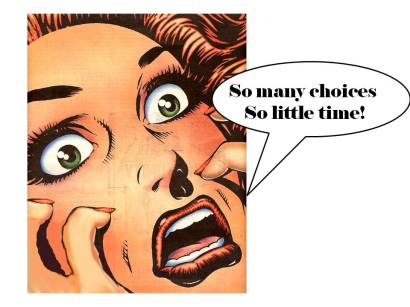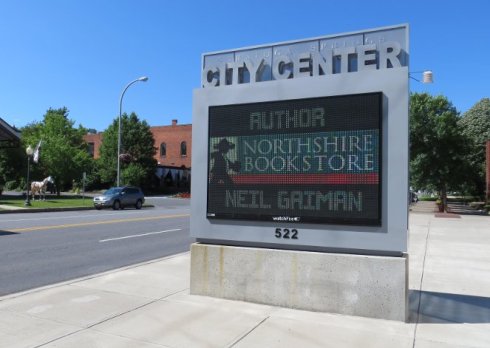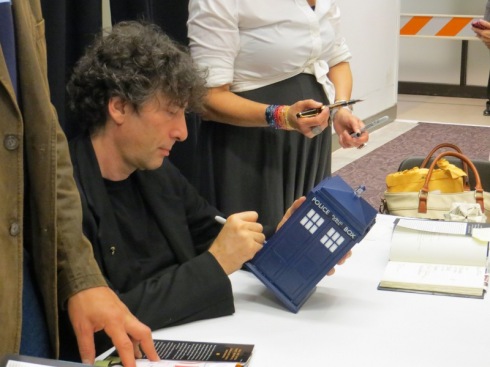Trump upsets many people.
Not because he’s supposedly some kind of rebellious folk-hero billionaire, speaking truth to power. And not because he is supposedly a “refreshing” messenger of difficult truths. And not because everyone else – the media, the government, the “system”, every minority population and educated outlet – is supposedly conspiring against him. These are manufactured myths. No, Donald Trump upsets people simply because of the person he is; the things he says and does, on record, of his own will. He upsets women, when he attempts to normalize and dismiss sexual assault and harassment. He upsets Latinos, when he (hypocritically) characterizes them as criminals and rapists, and talks about “the wall”. He upsets Muslims, when he speaks about persecuting them for their religious choice – degrading one of America’s core foundational values. He upsets the LGBT community with his proposed Supreme Court nominees – many of whom have pledged to overturn gay marriage.
And he upsets me, a white, middle-aged, minimally-educated, generally anti-establishment male (usually the demographic that Trump appeals to). Not just because I have people in my life who are women, and Muslim, and Latino, and gay. But also because I have to live in this country that he is tearing down with his fear, and hate, and misinformation. Because while all of this may just be publicity to him, or some bizarre rich-guy game of conquest, for the rest of the world, for us, it all matters. Whether or not he becomes the president, his campaign has brought out the worst in our electorate, it has troubled our economy and our foreign allies, and it has drawn our discourse away from vital policy discussion – issues like global warming, healthcare, education, civil justice. His total disregard for the truth (fact-checks matter!) has made it almost impossible for any two politically-opposed people to have a conversation based in a shared reality. Bad-boy, rockstar Trump has effectively turned our politics into a degrading daytime TV show, a spectacle that detracts from the efforts of real rebels and doers, the people in the world actually trying to make things better.
How did it get so far? How did someone with so much to hide, someone unqualified by every measure, and with such a poor temperament and character, come to dominate our national stage? The Trump candidacy is rooted not only in the appeal of sensational entertainment, but also in the psychology of revolt. It exists as a result of widespread disenchantment. Many Trump supporters are misinformed reactionaries who believe that the only way to “fix” the country is to, in a sense, burn it down first. Or they believe that an “unqualified” outsider is somehow just what a complex system needs, since “it can’t be any worse” (believe me folks, it can). Either way, they feel that the nation has failed them – and they aren’t wrong, in many respects. That’s the genius of the Trump candidacy – it exploits some very real and valid dissatisfaction. Yes, manufacturing jobs have fled America. Yes, homegrown terrorism is a growing problem. Yes, our foreign adventures often do more harm than good. Yes we don’t do enough for our veterans, for our children, for our elderly, for our poor…
The irony, of course, is that Trump’s party is largely the one making this mess. Republicans consistently legislate on the wrong side of all of these issues – even common-sense stuff like helping veterans. And more and more, they generate a climate of obstruction and division, playing to our basest impulses – fear, ignorance, rage. Trump, for all his outsider “street cred”, is still a republican, and he is on the wrong side of most of these issues as well – in fact on many things, he is farther right than most reasonable people would be.
He has also taken the fear-mongering and “liberal conspiracy” game to a whole new level, and woe be to any who oppose him! See, in the life of a billionaire like Trump, every problem, impulse, maneuver, and cover-up can be managed by moving around enough money and influence, and staying within the bubble of enablers and yes-men. And when it can’t be managed, can’t be glossed over or disappeared, well, then it can only be a conspiracy! Trump, like most of the far-right in recent years, seems to carry around a logic-proof reverse-victim complex. He thinks that the whole world is against him, even as he perpetuates his own ruin. This victim-complex is the first defense any time such a person is held to account for his own words and actions. “The media is out to get me!”, as they play a clip of his own, exact, unedited comments. After defense comes offense, maybe in the form of some irrelevant deflection, juvenile insult, or litigious threat. Bring out the lawyers, the rabble, the tin-foil hats.
It’s childish, and almost funny. But it’s also dangerous. Not to be alarmist, but it’s how dictators happen. Jailing your political opponents. Suing the free press for saying things you don’t like. Replacing critical high-brass military with people who will side with you. Taking what you feel you’re entitled to, whether it’s the labor of unpaid contractors, the unpaid taxes of a flawed system, or the feel of a non-consenting woman. Trump, it seems, has said or done all of it. I believe that he embodies and fosters the worst of our nature, and it’s terrible how successful he has been. As we approach the final weeks of this election and witness the decline (and increased volatility) of his campaign and supporters, I find myself upset and confused at my fellow Americans, and grateful that we at least live in a democratic republic of law and order.
Yes, it seems like America is now (finally) rejecting Trump and everything he brings with him. And because we live in a stable first-world country, the worst he can do about it is pitch a fit and throw around more conspiracies – “It’s all rigged!”, he proclaims, setting up excuses while continuing to sow division and exploit the public’s general distrust. In a less stable country, a person like this might stage a military coup, or foment a civil war (indeed, plenty of Trump supporters have thrown these threats around). Trump seems to believe that the country, indeed the entire world, is in ruin, and only he can save it – demonstrating not only a textbook narcissism, but also a kind of megalomania; along with an ignorance of how things actually work in a free country. Even as I type this, it’s not difficult to imagine getting a letter from the Trump legal team, as so many have already, for daring to criticize his majesty.
The fact that we allowed such a character to dominate our national stage is not only an embarrassment, it’s also a grave concern. Trump has clearly tapped into a visceral anger and fear that rages through much of this country – misguided, misinformed, but nonetheless powerful, and in some ways justified. We do need changes in America, always, in almost every sense. Fighting to make things better is a good thing. But that rebellious impulse, as we see in this election, is also an easy thing to exploit, and it can become a very negative force when it’s manipulated by misinformation and pointed the wrong way.
So this is my message to America’s rebels: Trump isn’t your flag-bearer. He’s a conman without solutions, worse than any politician, and he is playing you for his own ends. His rhetoric might hit your buttons, but his character and his actions embody everything we need to fight: dishonesty, greed, hate, oppression, censorship, ignorance, lack of accountability. He is not the champion of the everyman, or of the dispossessed – he is only the champion of himself, and by proxy the wealthy elite, the privileged and entitled who do whatever they want, regardless of consequences, always passing the buck. The things that are broken in America can’t be fixed with Trump’s blame-games, hypocritical doublespeak, and misdirected bluster. It takes dedicated everyday people, getting informed and getting involved. It takes an abandonment of the echo-chambers that have replaced knowledge, understanding, empathy, and pragmatism. True rebellion is to see through the facade, to question everything, to make the best choices we can, and to fight the forces that seek to keep us down. In normal days, those forces are plentiful enough, and that’s precisely the feeling that the master showman tries to exploit – offering nothing substantial of his own. But at this particular moment in history, as we face social struggles, global threats, and environmental crises, I think the biggest hindrance to our progress and wellbeing as a free and diverse nation is easily Trump himself.
Tags: 2016, change, Election, Politics, rebellion, Vote






